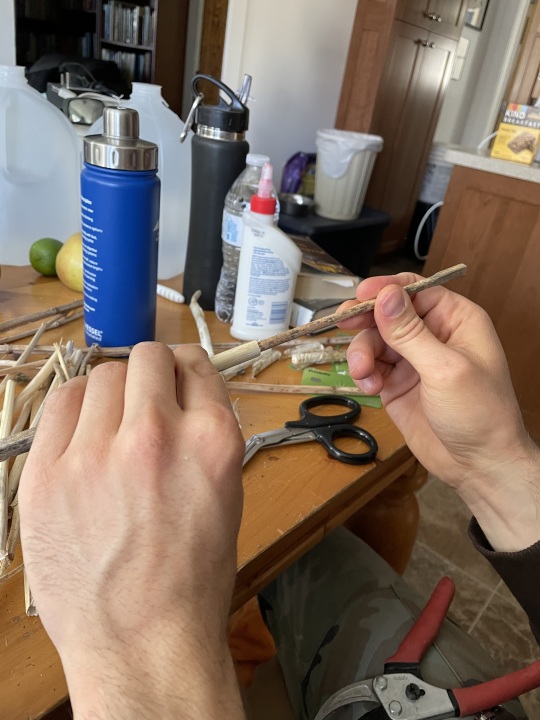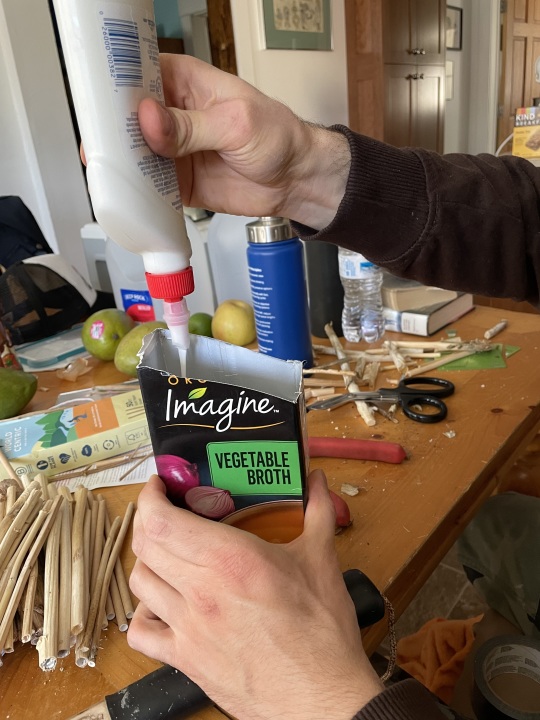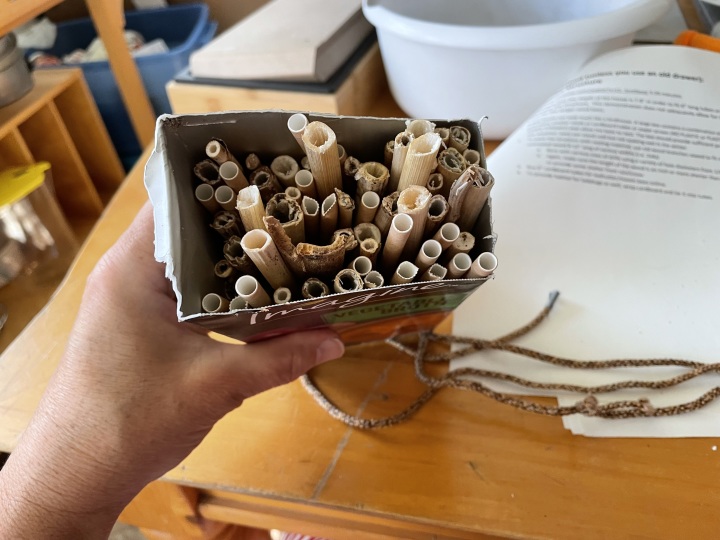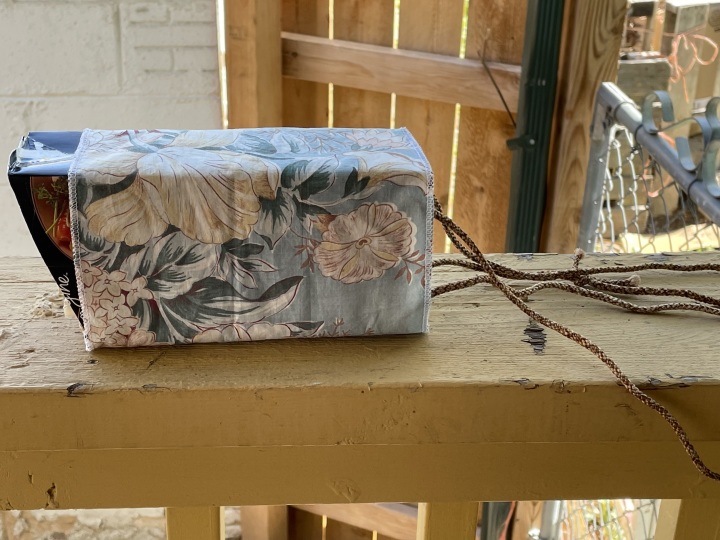native bee house
Apr. 30th, 2022 05:23 pmLast month I went to a seed swap hosted by the People and Pollinators Action Network. I got some native flower seeds and supplies and instructions for making a native bee house. I just put the pictures up on instagram but I want to describe the process so I'm posting them here too.
Some native bees like to nest in small but deep holes. You can drill holes for them in blocks of wood, but hollow stems also work.
Here's Mungo hollowing out some stems that didn't hollow themselves. We also used some paper straws when we ran out of stems.

A plastic bottle or tetra-pak box will shelter the stems from rain. Cut the container with a bit of an overhang, and mount it tilted slightly downward, so any rain that does blow in will drain out. I threaded two bootlaces through the bottom of the box, to tie it securely to a fencepost.

Put modeling clay or glue in the bottom of the box to hold the stems:


Wrap it in a pretty cloth so it doesn't look like garbage. Mount it facing south or southeast.

Some native bees like to nest in small but deep holes. You can drill holes for them in blocks of wood, but hollow stems also work.
Here's Mungo hollowing out some stems that didn't hollow themselves. We also used some paper straws when we ran out of stems.

A plastic bottle or tetra-pak box will shelter the stems from rain. Cut the container with a bit of an overhang, and mount it tilted slightly downward, so any rain that does blow in will drain out. I threaded two bootlaces through the bottom of the box, to tie it securely to a fencepost.

Put modeling clay or glue in the bottom of the box to hold the stems:


Wrap it in a pretty cloth so it doesn't look like garbage. Mount it facing south or southeast.
